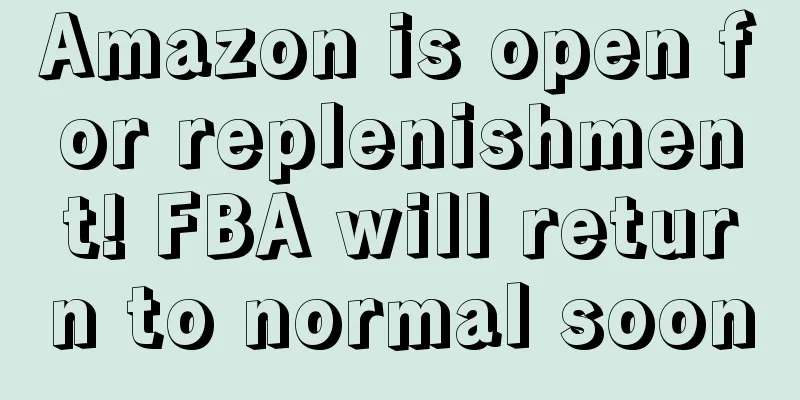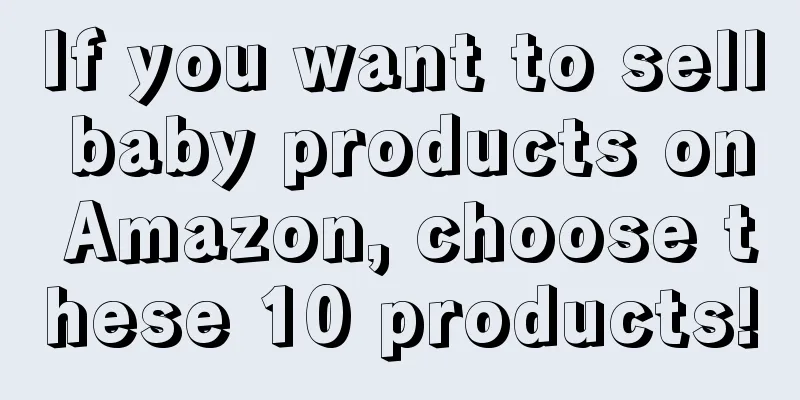Amazon is open for replenishment! FBA will return to normal soon

|
Amazon announced last week that it will continue to implement shipping restrictions after April 5. Shipping plans cannot be created for all categories other than the six essential products. However, Amazon still has some conscience and has opened up restocking permissions for a small number of out-of-stock products, allowing sellers to quickly replenish their bottomless inventory. At that time, because Amazon had very few SKUs available for replenishment and the algorithm’s capture mechanism was very strange, it was often the case that hot-selling products were not allowed to be replenished, but products with poor sales could be replenished, which attracted complaints from many sellers. In the week after April 5, more and more sellers reported in our chat group that the number of SKUs that can be replenished has increased significantly! There are even some sellers who are not in the six major categories who can replenish all their products. After searching for some information, although there is no official announcement from Amazon, I also found relevant reports from foreign media that Amazon is indeed opening up restocking rights to a large number of third-party sellers. At the current rate, it is likely that normal restocking will be resumed in a few weeks! ◆ ◆ ◆ ◆ Current status of replenishable products According to data and information revealed by foreign media, among products other than the six major categories, Amazon seems to have given priority to restoring the replenishment rights of some household and indoor products, such as kitchen supplies, home furnishings, toys and games, etc. Considering that the United States is now implementing increasingly strict stay-at-home orders, the rising demand for indoor products is an inevitable result. It seems that Amazon's statement of "gradually opening up replenishment permissions based on demand" is indeed slowly being realized. And the better news is that in March, the sales activities of Amazon's third-party sellers did not stop as expected. In a survey conducted by foreign media, more than 80% of sellers said that their sales increased by about 2%-8% compared with last year. One of the sellers said that although it is not a necessity and its shipment is also restricted, their inventory was in good condition before the replenishment was suspended, which led to an 11% increase in sales in March compared to the same period. At the same time, they also believe that even if the stay-at-home order is lifted, many consumers will still choose to shop online to avoid crowded stores. Regarding opening up more product replenishment, foreign media also asked Amazon internal staff, and received an official reply that the company will selectively open up replenishment permissions for more products in the future, allowing them to send inventory to the FBA operation center. At the same time, new tools will be launched in the seller's backend to help sellers check whether the operation center will receive their products. According to Amazon's response, relevant people also speculated that Amazon may resume normal FBA replenishment function in the next few weeks. The demand for online shopping is high now, not only the six major necessities, but also other daily necessities have increased to a considerable extent. For most sellers, as long as there are goods to ship, it is good news. However, the most popular products are definitely those related to epidemic prevention, such as masks, disinfectants, hand sanitizers, and even scarves promoted by Trump. When masks became popular some time ago, sellers who smelled the trend and made arrangements in advance could easily get hundreds of orders a day. And according to the pattern of panic buying in China, hand sanitizers, disinfectants and other epidemic prevention products will be the next entry point into the market. If you want to sell these epidemic prevention materials overseas now, you must comply with local epidemic prevention material standards, such as Europe's CE and the United States' FDA certification. Domestically, you also need a local market compliance certificate when you leave the country. For students who want to seize the opportunity to enter the market to produce epidemic prevention materials, the above certificates must be confirmed with the source of goods. At the same time, if you want to produce products such as hand sanitizer, you also need a logistics channel that can deliver liquids. General freight forwarders cannot handle these special products. |
<<: The US epidemic has not eased yet! Amazon postpones Primeday
>>: Amazon suspends FBA delivery in June? !
Recommend
Share several common methods of deleting negative reviews on Amazon
When an Amazon buyer leaves a bad review for a ne...
How to know if a product is selling well?
No need to use any software tools, no need to use...
Etsy releases 2023 strategic priorities: strengthen product marketing, launch new seller discounts
It is learned that according to foreign media repo...
Seize the opportunity of the epidemic! Cross-border sellers turn losses into profits
This epidemic has dampened the confidence of many ...
Walmart seller benefits are coming again, and logistics costs are reduced again!
In order to improve transportation efficiency, Wa...
What is 1688 Cross-border Special Supply? 1688 Cross-border Special Supply Review
1688 Cross-border Exclusive Supply is a cross-bord...
Amazon has tens of thousands of misjudged links! They are being restored one after another
Normal, once there is data abnormality, such as s...
Two Chinese-made models were recalled! The number involved exceeded 1 million!
<span data-shimo-docs="[[20,"获悉,据外媒报道,4月14...
What is Zally? Zally Review
Zally is a free Amazon tool that is mainly used to...
What is Everything Grows? Everything Grows Review
Wanwu Zhangsheng (Ningbo Wanwu Zhangsheng Supply C...
Good news! Amazon waives long-term storage fees for FBA in 7 more countries!
Amazon has been making trouble recently! First, th...
What is WordStream? WordStream Review
WordStream is a search marketing software provider...
Tik Tok sales strategy: How to achieve a surge in sales through collaboration with influencers?
In today's rapidly developing digital world, ...
High inflation in the United States hits demand for footwear products! Amazon is still the preferred purchasing channel
According to the latest 2022 U.S. Spring Footwear ...
The epidemic in the United States is difficult to control, and foreigners are actually retaliating against Amazon sellers in this way!
Foreigners' satire on the Chinese has been goi...









